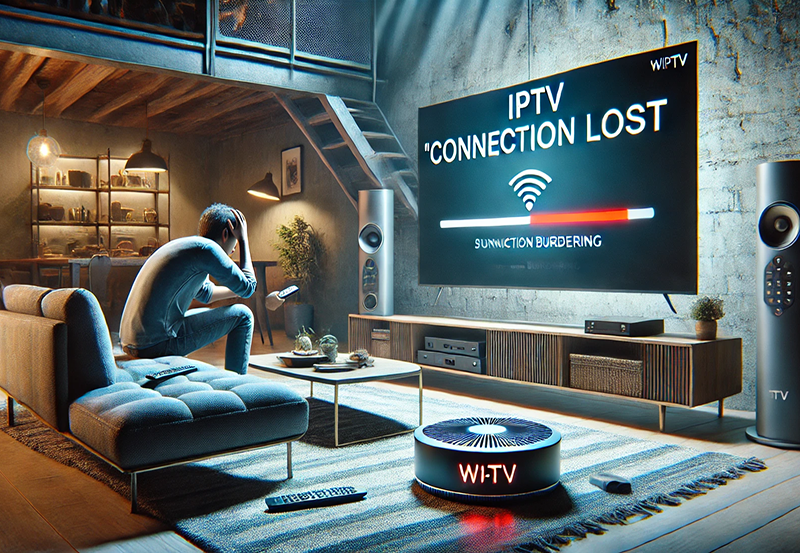In the vast and dynamic world of internet protocols and streaming technologies, a persistent issue often arises—Internet Service Provider (ISP) throttling. This issue bears significant relevance, especially for those relying on Internet Protocol Television (IPTV) services. Throughout this article, we will explore the intricacies of why ISP throttling affects IPTV and elaborate on effective methods to circumvent this inconveniencing hurdle. Our focus will encompass the essential aspects of DuplexIPTV and IPTV trials along with providing some ultimate streaming insights that can be beneficial for both professionals in the industry and general users alike.
What is ISP Throttling?
ISP throttling, sometimes termed as bandwidth throttling, involves intentional slowing down of internet speed by Internet Service Providers. Unlike occasional service disruptions, throttling is a deliberate action taken to manage and control network traffic, affecting specific bandwidth-heavy activities such as streaming, torrent downloads, and sometimes even online gaming. While ISPs claim that throttling helps in effective management of network resources, it often results in a quality decline for end-users.
With the rise of IPTV—which delivers television content over internet protocol networks—the implications of throttling have become a pressing concern. Streaming high-definition (HD) content requires substantial bandwidth, and when throttled, the viewing experience can be severely jeopardized, leading to buffering and lower resolution streams.
Quick Suggestion:
Enjoy premium live TV and sports with Xtreme HD UK IPTV, the ultimate subscription for seamless streaming.
Reasons Behind ISP Throttling
There are several reasons ISPs may choose to throttle their users’ internet connections:
- Network Congestion: ISPs might throttle in response to network congestion, aiming to balance the load across users and services.
- Data Caps: Throttling can enforce data caps, ensuring that users don’t exceed their data allocation.
- Regulatory Compliance: Certain regions may have legislation mandating ISPs to manage traffic in a particular manner.
Understanding these reasons can help users identify when throttling is happening and rationalize the ISP’s behavior, even if it might not seem justified from a consumer standpoint.
How ISP Throttling Affects IPTV
IPTV relies heavily on consistent and reliable internet speeds to deliver television content smoothly to viewers. Throttling can severely impact this experience by causing:
- Prolonged Buffering Times
- Reduced Video Quality
- Interrupted Viewing Experiences
These adverse effects not only disrupt enjoyment but may lead users to seek alternative, perhaps less legitimate, streaming avenues or technologies that offer more consistent service.
Bypassing ISP Throttling: Effective Strategies
For those frustrated with continuous buffering and low-quality streams, bypassing ISP throttling is often viewed as a necessity. But how does one circumvent these limitations while ensuring legal compliance? Here are a few strategies to consider:
Using Virtual Private Networks (VPNs)
One of the most popular and effective methods to bypass ISP throttling is using a Virtual Private Network (VPN). A VPN encrypts your internet traffic, masking your activity and IP, making it difficult for ISPs to throttle specific types of traffic. When choosing a VPN, it is essential to select services renowned for their speed and encryption quality to ensure minimal slowdowns on their end.
Choosing the Right VPN for IPTV
When selecting a VPN specifically for IPTV, look for features such as unlimited bandwidth, multiple server locations, and specific streaming optimizations. Many VPNs offer trials to provide users a taste before committing, which is beneficial in testing real-time performance improvements with DuplexIPTV and similar services.
Switching ISPs or Plans
If throttling continues to be a persistent issue, and your ISP provides no alternative, it might be time to consider switching providers. Some ISPs have plans with no data caps and don’t engage in throttling, albeit usually at a premium. Analyzing these options could be more cost-effective in the long term, especially for avid streamers or users running multiple IPTV connections daily.
Negotiating with Your Current ISP
Before making a switch, engage in a dialogue with your current provider. Sometimes, ISPs offer modified packages with reduced throttling or additional perks that can ensure you get the best possible service within existing constraints.
Optimizing IPTV Settings
Some may overlook the fact that tweaks within IPTV settings themselves can moderately enhance performance. Lowering the streaming bitrate or selecting alternative streaming sources within IPTV apps can mitigate buffering issues independent of ISP throttling.
IPTV services often provide guides or FAQs, such as those provided by Ultimate Streaming Insights, to assist users in understanding what settings can be adjusted to enhance viewing without a drastic change in perceived quality.
Technological Insights and Trends in IPTV
IPTV technology continues to evolve, rapidly embracing advancements that push back against ISP-imposed limitations. Staying abreast of these changes is invaluable for both traditional viewers and tech enthusiasts alike.
Advances in IPTV Protocols
Recent developments in the DuplexIPTV domain highlight innovative strides in streaming protocol optimizations. These allow IPTV services to deliver content more efficiently, minimizing the negative impacts of bandwidth throttling. Adopting protocols like Streaming Quality Optimization Protocol (SQOP) is becoming more common, aiming to prioritize video frame rates over non-critical data during congestion.
IPTV Trials and Testing
The increase in IPTV trial services is also notable, allowing potential subscribers to gauge the service under real conditions without a financial commitment. These trials typically offer insights into how the service handles high traffic scenarios, potentially buffering against ISP restrictions.
Community and User Reviews
User communities are invaluable pools of information and experience. Engaging in forums can uncover insights into high-performing setups and identify strategies adopted by other users facing similar issues with throttled services. Recommendations from trusted peers about equipment, such as routers with Quality of Service (QoS) capabilities, can make a significant difference in managing ISP throttling.
The Future of IPTV in a Throttled World
While ISP throttling presents challenges, innovation in IPTV technology and bypass techniques have spawned a new era in consumer streaming. The adaptability of IPTV providers to technological changes and consumer demands underscores an industry that’s resilient in the face of computational headwinds.
Ultimately, the evolution of IPTV, bolstered by inventions like DuplexIPTV and supported by rich resources like Ultimate Streaming Insights, shows promise for a future where throttling will be less of a deterrent and more of a managed variable.
Frequently Asked Questions

Can ISP Throttling Be Detected?
Yes, users can detect ISP throttling through various tools and methods such as speed tests, monitoring specific traffic performance, or using detection features offered by certain VPN services. If there’s a significant slowdown in specified activities like streaming, throttling could be a suspect.
Is Bypassing ISP Throttling Legal?
Using methods such as VPNs to bypass ISP throttling is legal in most regions. However, it’s essential to adhere to the terms of service agreements established by the ISP. Understanding your regional laws and ISP agreements is crucial before taking action.
Does IPTV Work Without Internet?
No, IPTV requires a stable internet connection to receive streaming data. While offline equivalents exist in the form of stored media, live or on-demand IPTV streams rely on continuous internet connectivity.
Which ISPs are Best for IPTV?
ISPs that offer high-speed internet plans with no data caps and avoid throttling are naturally better for IPTV. Conducting an area-specific search and reading user reviews can help inform decisions on the best ISP for streaming needs.
What Settings Improve IPTV Performance?
Adjustments such as reducing streaming bitrates, using wired connections, optimizing home network settings, and opting for servers near your location within IPTV apps can enhance performance even under ISP constraints. Trial and error will help determine the best settings for individual circumstances.
Revitalize Your Old Samsung Smart TV with IPTV Installation





